Table of Contents

The Bloomsbury Anthology of GREAT
INDIAN POEMS
Also by Abhay K.The Seduction of DelhiCAPITALS100 Great Indian Poems100 More Great Indian PoemsThe Eight-eyed Lord of Kathmandu The Bloomsbury Anthology of GREAT
INDIAN POEMS
Edited by Abhay K.

BLOOMSBURY INDIA Bloomsbury Publishing India Pvt Ltd Second Floor, LSC Building No. 4, DDA Complex, Pocket C 6 & 7, Vasant Kunj, New Delhi 110070 BLOOMSBURY, BLOOMSBURY INDIA and the Diana logo are trademarks of Bloomsbury Publishing Plc First published 2019 Concept, Anthology Selection and the Editors Note Copyright Abhay K., 2019 Individual poems and translations copyrights of the individual poets and translators.
Disclaimer: The editors views are his own. The views expressed by the contributors in this anthology are solely their own.
Publishers Note: If, through inability to trace the present copyright owners, any copyright material is included for which permission has not specifically been sought, apologies are tendered in advance to proprietors and publishers concerned.
Publishers Note: If, through inability to trace the present copyright owners, any copyright material is included for which permission has not specifically been sought, apologies are tendered in advance to proprietors and publishers concerned.
The publishers will be happy to make the necessary amendments at the first opportunity All rights reserved. No part of this publication may be reproduced or transmitted in any form or by any means, electronic or mechanical, including photocopying, recording, or any information storage or retrieval system, without prior permission in writing from the publishers Bloomsbury Publishing Plc does not have any control over, or responsibility for, any third-party websites referred to or in this book. All internet addresses given in this book were correct at the time of going to press. The author and publisher regret any inconvenience caused if addresses have changed or sites have ceased to exist, but can accept no responsibility for any such changes ISBN PB: 978-93-89449-57-0; ebook: 978-93-89449-58-7 2 4 6 8 10 9 7 5 3 1 Created by Manipal Technologies Limited To find out more about our authors and books visit www.bloomsbury.com and sign up for our newsletters CONTENTS On 10 December 1950, William Faulkner began his Nobel Prize acceptance speech with these words, I feel that this award was not made to me as a man, but to my work a lifes work in the agony and sweat of the human spirit, not for glory and least of all for profit... As art transcends the artist, poetry transcends the poet. Faulkner further elaborated upon the importance of artwork over the artist in an interview with The Paris Review in 1956.
Referring to the futility of conflict over the authorship of Shakespeares works, he contends, ...what is important is Hamlet and A Midsummer Nights Dream, not who wrote them, but that somebody did. The artist is of no importance. Only what he creates is important. This is what I had in mind when I started editing 100 Great Indian Poems and its companion volume 100 More Great Indian Poems, which combined together make The Bloomsbury Anthology of Great Indian Poems. The poetry anthologies I had come across while growing up in India had a clear emphasis on the poets, which is illustrated in the titles such as Ten Twentieth Century Indian Poets, Twelve Modern Indian Poets, Nine Indian Women Poets or 60 Indian Poets. An exception may be These My Words, edited by Eunice de Souza and Melanie Silgardo, which could be otherwise daunting and inaccessible to common people.
These lines from De Souzas poem Meeting Poets are telling I am disconcerted sometimesby the colour of their socksthe suspicion of a wigthe wasp in the voiceand an air, sometimes, of dankness.Best to meet in poems:cool speckled shellsin which one hearsa sad but distant sea A general reader does not need to know which prizes a poet has won, how many books has s/he published or which festivals has s/he attended; the charm and force of an individual poem is sufficient to move the reader. Poetry survives the poets because of its timeless and intrinsic value. Therefore, I dont understand the obsession of the 20th century anthologists of Indian poetry with the poets. I was fascinated with Rashmirathi by Ramdhari Singh Dinkar while growing up as a child in rural Bihar. I chanced upon my fathers worn-out copy of this book at home when I was in class four. The magic that I had felt in the sound and energy of words in Rashmirathi stays with me till date.
This Hindi epic tells the story of Karna, Krishna, Pandavas and Kauravas. It was my first lesson in literature as well as in politics and diplomacy. I memorized its third canto by heart as I often read it. I still do. I have unsuccessfully tried to translate this work into English. The magic of native words is lost in translation; and therefore, verses from Rashmirathi do not find a place in the anthology of great Indian poems.
For the similar reason of untranslatability, several other great poems could not fit into this anthology. My desire to take rasa and riches of Indian poetry to the world and to bring the focus back to the poem from the poet gave birth to 100 Great Indian Poems. This was called for after having brought some of the worlds best poems to India in CAPITALS in 2017. It received overwhelming reception in India and abroad. Its first volume sold out within first few months of its publication. Commenting on the selection of poems in 100 Great Indian Poems, French philosopher Christopher Macann said, they are quintessential, always simple, often profound, generously sensuous, occasionally political and frequently funny.
Reviewing the anthology in the First Post, Manik Sharma wrote, 100 Great Indian Poems attempts something endearingly unique and preposterously impossibleto merge and collate 3000 years of Indian poetrys history via a hundred of its samplings 100 Great Indian Poems has been translated into Portuguese, Spanish, Italian, Irish, Russian, French, Malagasy and Nepali. The Portuguese edition is published by the University of So Paulo, Brazil, the Spanish edition by the Autonomous University of Nuevo Len, Monterrey, Mexico while its Italian edition is published by Edizione Efesto in Rome, Italy. It is for the first time that a poetry anthology from so many Indian languages covering over three thousand years of Indian poetry has been translated and published into several world languages. The overwhelming interest of translators and readers inspired me to come up with 100 More Great Indian Poems to serve as its companion volume, and the growing demand for both these anthologies inspired me to bring out a combined volume titled as The Bloomsbury Anthology of Great Indian Poems. India has a plethora of languages and each languages rich nuance is tapped in poems waiting to be discovered, read, discussed and cherished. How does one put together an anthology of poems from so many Indian languages? How does one introduce the gems of Indian poetry to the world? Indias regional languages have a wealth of great Indian poems which rarely comes out in the absence of good translations. Every poem included in this anthology speaks out loudwe need more translations and translators.
Most of the translators in this anthology are poets themselves, who carry not only a poetic but also linguistic sensitivity, the prerequisite for rendering these poems from Indias regional languages effectively into English. This anthology also highlights the achievements of Indian poetry written in English by Indian poets as well as Indian diaspora poets and how they have turned English, once a foreign language, into their own. Editing this anthology has been a labour of love. I have read widely, almost all poetry anthologies covering different languages and geographical regions of India published so far. It includes poems translated from twenty-eight Indian languages, viz., Assamese, Bengali, Bhili, Chakma, Dogri, Gondi, Gujarati, Hindi, Kannada, Kashmiri, Khasi, Kokborok, Konkani, Maithili, Malayalam, Marathi, Nepali, Oriya, Persian, Punjabi, Rajasthani, Sanskrit, Santhali, Sindhi, Tamil, Telugu, Urdu and Prakrit languages including Pali as well as poems originally written in English. There is an abundance of light, irony, sensuousness and spirituality in the poems.

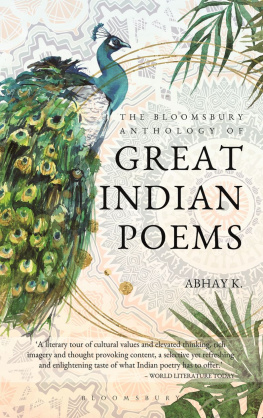

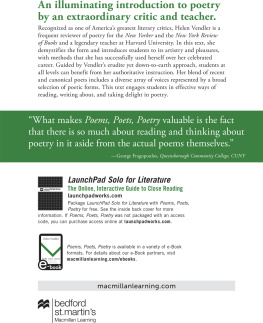
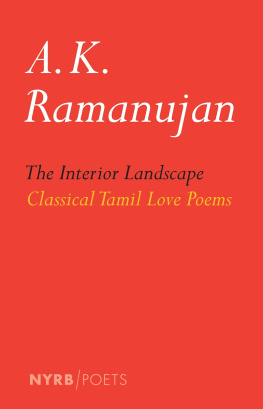
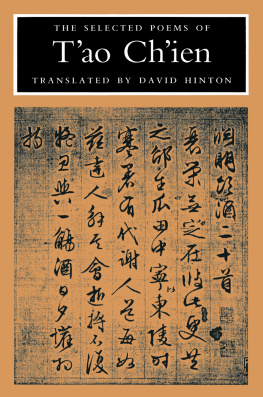
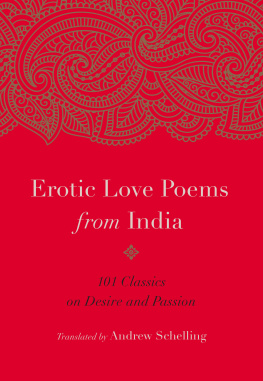
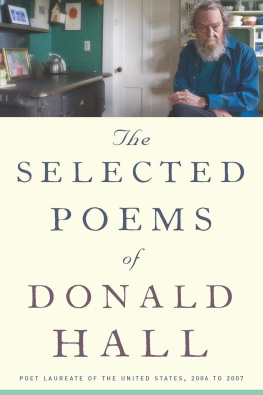
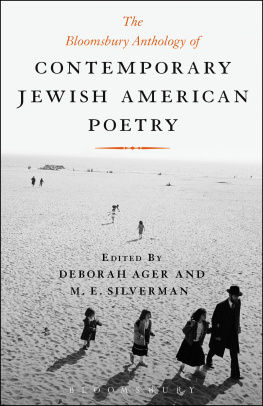
 The Bloomsbury Anthology of GREAT
The Bloomsbury Anthology of GREAT BLOOMSBURY INDIA Bloomsbury Publishing India Pvt Ltd Second Floor, LSC Building No. 4, DDA Complex, Pocket C 6 & 7, Vasant Kunj, New Delhi 110070 BLOOMSBURY, BLOOMSBURY INDIA and the Diana logo are trademarks of Bloomsbury Publishing Plc First published 2019 Concept, Anthology Selection and the Editors Note Copyright Abhay K., 2019 Individual poems and translations copyrights of the individual poets and translators. Disclaimer: The editors views are his own. The views expressed by the contributors in this anthology are solely their own. Publishers Note: If, through inability to trace the present copyright owners, any copyright material is included for which permission has not specifically been sought, apologies are tendered in advance to proprietors and publishers concerned. Publishers Note: If, through inability to trace the present copyright owners, any copyright material is included for which permission has not specifically been sought, apologies are tendered in advance to proprietors and publishers concerned.
BLOOMSBURY INDIA Bloomsbury Publishing India Pvt Ltd Second Floor, LSC Building No. 4, DDA Complex, Pocket C 6 & 7, Vasant Kunj, New Delhi 110070 BLOOMSBURY, BLOOMSBURY INDIA and the Diana logo are trademarks of Bloomsbury Publishing Plc First published 2019 Concept, Anthology Selection and the Editors Note Copyright Abhay K., 2019 Individual poems and translations copyrights of the individual poets and translators. Disclaimer: The editors views are his own. The views expressed by the contributors in this anthology are solely their own. Publishers Note: If, through inability to trace the present copyright owners, any copyright material is included for which permission has not specifically been sought, apologies are tendered in advance to proprietors and publishers concerned. Publishers Note: If, through inability to trace the present copyright owners, any copyright material is included for which permission has not specifically been sought, apologies are tendered in advance to proprietors and publishers concerned.